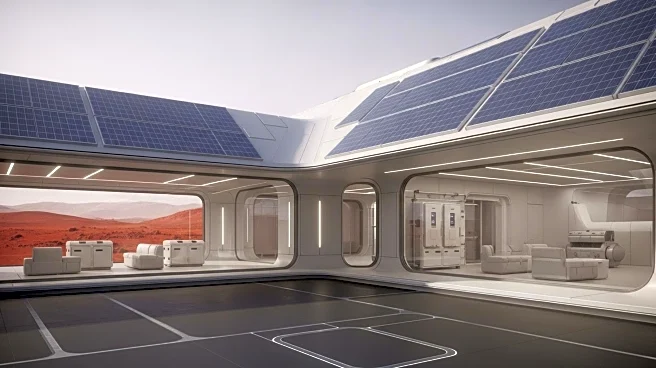What's Happening?
Building settlements on Mars presents unique challenges due to the lack of natural resources and the difficulty of transporting supplies from Earth. Future Martian settlements will rely heavily on in-situ resource utilization, using available materials like water, carbon dioxide, and Martian soil. Plans include using nuclear reactors for power and developing manufacturing equipment to create essential materials. Innovative approaches, such as mycotecture, propose using genetically adapted fungi to grow structures, offering a sustainable solution for building habitats on Mars.
Why It's Important?
The development of self-sustaining settlements on Mars is crucial for long-term space exploration and potential colonization. Utilizing Martian resources reduces dependency on Earth, making settlements more viable and cost-effective. These advancements could accelerate technological innovations in resource management and construction, impacting industries related to space exploration and sustainability. Successful implementation of these plans could pave the way for future missions and expand human presence beyond Earth.
Beyond the Headlines
The ethical and environmental implications of colonizing Mars are significant. The use of nuclear power and genetic engineering raises questions about safety and long-term impacts on the Martian environment. Additionally, the cultural shift towards interplanetary living challenges existing norms and could lead to new societal structures. These developments may influence global policies on space exploration and resource utilization, prompting discussions on the responsible expansion of human activities in space.










